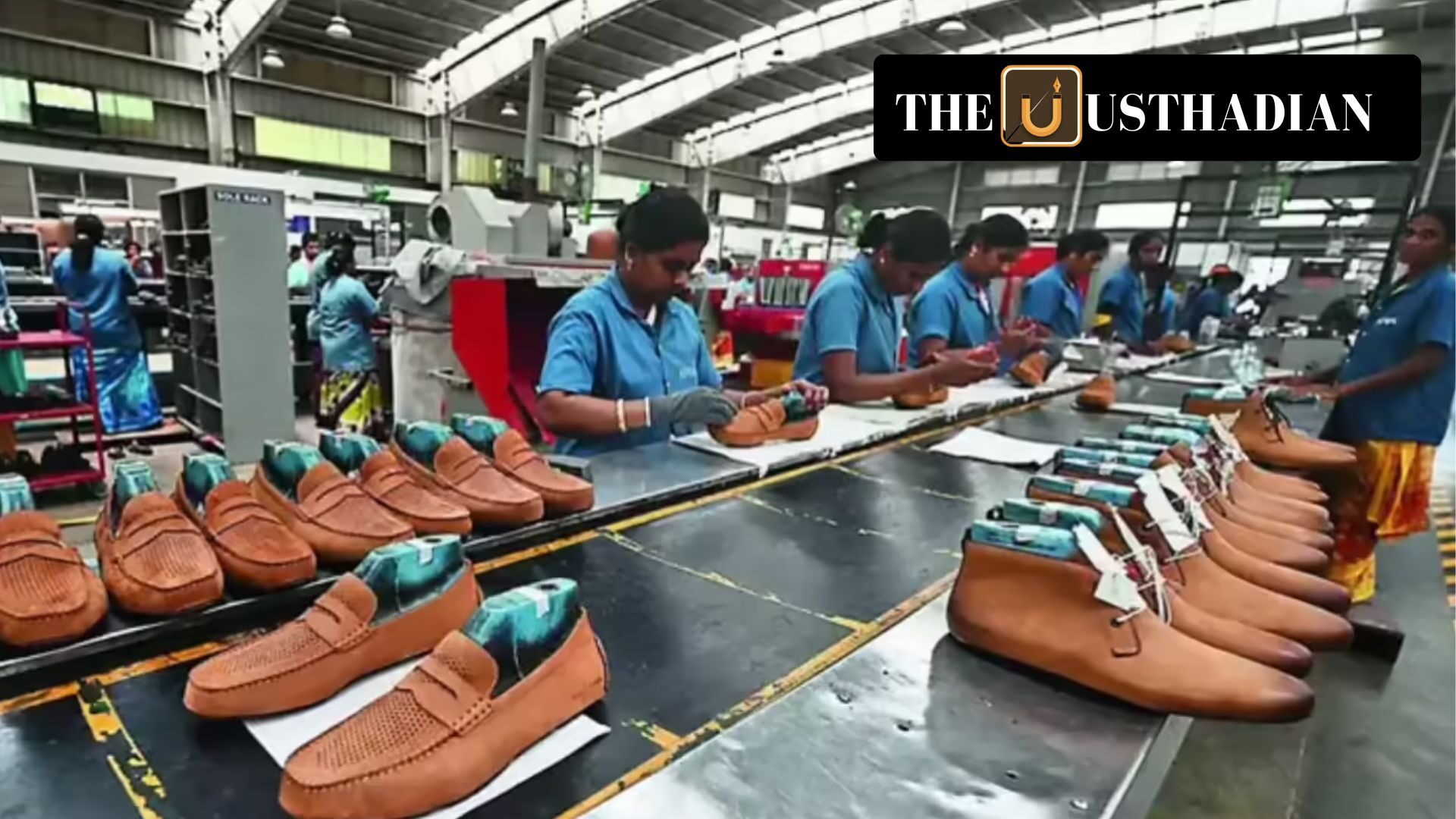Boosting Footwear Manufacturing: From Leather to Non-Leather
Tamil Nadu’s Footwear Push and Illam Thedi Kalvi Lead Economic Survey Highlights: Tamil Nadu has long been a pioneer in India’s leather industry, and now it is taking bold steps to expand into non-leather footwear manufacturing. The Economic Survey 2024–25 highlights the state’s contribution of 38% to India’s overall leather and footwear production, with 47% of the country’s total leather exports coming from Tamil Nadu. This transformation isn’t just about trade—it’s also about job creation, as the sector currently employs over 2 lakh people across the state.
To further drive this sector, Tamil Nadu introduced a dedicated Footwear and Leather Products Policy in 2022. This policy aims to modernize traditional manufacturing, attract investments, and promote eco-friendly non-leather products, aligning with global trends in sustainability. It also provides support for skill development, infrastructure upgrades, and export growth.
Education at the Doorstep: Bridging Post-Pandemic Gaps
Illam Thedi Kalvi, which translates to “Education at the Doorstep,” is another flagship initiative that earned praise in the Economic Survey. Launched in the wake of COVID-19 school closures, this program focuses on restoring learning among children who were impacted by the digital divide and lack of classroom access. Instead of relying on screens, the program deploys volunteers for physical, face-to-face learning in homes and communities.
The scheme has seen massive volunteer participation, with lakhs of educated youth teaching children from underprivileged backgrounds. The focus remains on foundational literacy and numeracy, helping bridge the educational loss during the pandemic, especially in rural and disadvantaged areas.
Industrial Strength: Tamil Nadu Leads in Factory Density
Apart from sector-specific policies, Tamil Nadu’s overall industrial ecosystem also got a spotlight in the survey. Among larger Indian states, Tamil Nadu ranks highest in terms of factory concentration per person, with Gujarat following. This shows how industrialisation is deeply rooted in the state’s economy, helping it remain a top destination for manufacturing investments in sectors beyond leather, such as electronics, textiles, and automobiles.
This combination of targeted policies and inclusive schemes reflects a balanced approach—driving economic growth while ensuring social equity. The survey praises Tamil Nadu’s proactive model as an example for other states looking to blend development and welfare.
Static GK Snapshot: Tamil Nadu Economic Highlights
| Fact | Details |
| Footwear Production Share | 38% of India’s total footwear and leather output |
| Leather Export Share | 47% of India’s leather exports |
| Employment in Sector | Over 2 lakh jobs |
| Policy Launched | Footwear and Leather Products Policy, 2022 |
| Education Scheme | Illam Thedi Kalvi (post-COVID education outreach) |
| Industrial Ranking | Highest factory concentration among large Indian states |








